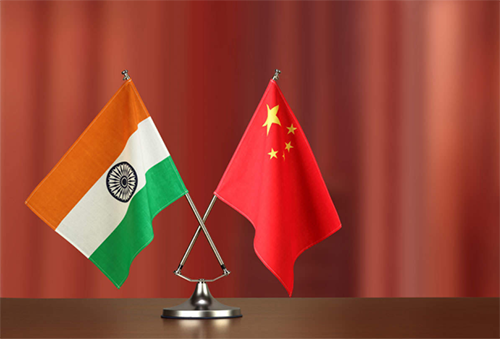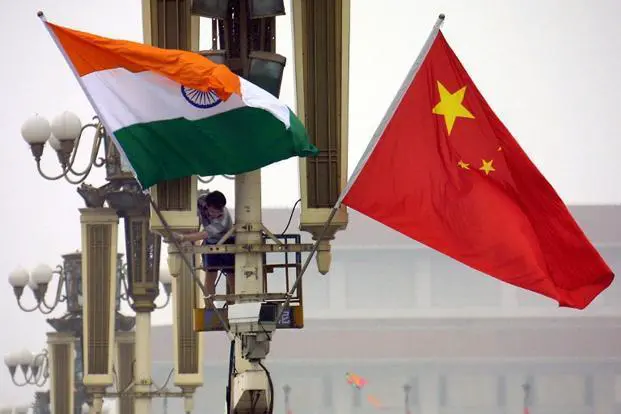Author: Prof. Engr. Zamir Ahmed Awan, Sinologist (ex-Diplomat), Editor, Analyst, Non-Resident Fellow of CCG (Center for China and Globalization), National University of Sciences and Technology (NUST), Islamabad, Pakistan. (E-mail: [email protected]).
Indian sick mentality has not changed yet. In response to China’s release of information about its four soldiers' death during a clash with Indian border troops in June last year, some Indian media and public opinion either hinted at or directly suspected China’s concealment of actual casualties.
India is in a full-scale hybrid war with China and using media as a tool. The recent EU Disinfo Lab findings have also criticized that India is in a full-scale hybrid war against China and Pakistan. Indian think tanks, media personnel, and intelligence agencies are spreading fake news, misinformation and harming China and Pakistan.
Indian media is in the habit of even maliciously distorting the facts and has been inflated the fatalities on the Chinese side, trying to save face in front of their own public.
It is well understood that many people in India are weak-minded. Considering India’s humiliating defeat in the 1962 China-India War, many Indian people desperately longed for a victory. Therefore, they insist that New Delhi has won this time, regardless of the facts.
Indeed, China’s national strength is far more muscular than that of India. China’s GDP is nearby five times that of India, and China’s defense budget is nearly three times that of India.

This being the case, the two countries’ armies have still started to disengage simultaneously, which can be regarded as a victory for India to some extent because India could have suffered an enormous loss.
China strictly follows its policy of peaceful developments and strategically, its good wish not to have military conflicts with India and try its best to resolve disputes through political, diplomatic peaceful means. However, Indian public opinion regards this as Beijing’s weakness.
There is actually no basis for India to exaggerate casualties of the Chinese side. Some Indian people are eager to win, and they feel that only by exaggerating Chinese losses can they prove India has won. It is instead a betrayal of their own public only. Therefore, Indian media and public opinion deceive themselves and distort the facts, trying to regain a little confidence.
An Indian citizen said on Twitter that if only four had died, China wouldn’t have pulled back. This represents a general tendency of Indian public opinion. They believe that if China really obtained such a significant advantage, then Chinese soldiers would have to launch a full attack. But China did not do so, so they doubt the information released by Chinese officials. Indian public opinion not only fails to understand China’s restraint but is even wantonly discrediting the Chinese side.
However, Indian withdrawal is from its own territory, but Chinese withdrawal is from Indian territory. India has lost some areas, but China kept its geographical integrity intact.
India has been influenced by a Western mentality, including the zero-sum mentality. Indian public opinion does not understand China’s sincerity in resolving disputes. It is difficult for many Indian people to know why China would exercise restraint when it has an advantage in its national strength, military, and economy. China could have quickly resolved the border dispute with India through war, but China did not.
Also, the Chinese side chose to unveil the details of the four People’s Liberation Army martyrs now because China did not want to hype domestic national sentiment. If China unveiled the details during the Galwan Valley border clash, it would cause anger across China. China still hopes to resolve disputes with India through peaceful means, and we do not intend to wage war against India.
But Indian public opinion does not understand this. This reflects that many Indian people believe in the jungle's law — they think that whoever is strong has the reason to attack. They do not understand China’s restraint, nor do they understand a country’s development relies mainly on domestic reform, economic development, and people’s diligence and wisdom.
India’s overall mentality has not changed much compared with 1962. India is still so conceited and arrogant. New Delhi knew well that it lacks the strength to provoke Beijing, but it always made the wrong decision because of the strong domestic nationalist sentiment. But in 1962, China and India lacked mutual understanding, and to a great extent, misjudgments led to the border military clash. Now, China and India know each other quite well, and they also have a clearer understanding of each other’s national strength.
India should know that if it launches a war against China due to domestic sentiment, it may suffer from a more humiliating defeat than 1962.
(ASIA PACIFIC DAILY)
 简体中文
简体中文






